ROAD TO THE WELL
“Laurence Fuller plays a directionless young man having a very bad weekend in "Road to the Well," a low-budget neo-noir distinguished by strong characters and a skewed perspective.” - LA Times
An unconventional PhD dropout (Laurence Fuller) & his drifter best friend get tangled in a surreal web of murder & deceit in Road To The Well, a dark, quirky thriller following in the footsteps of Blood Simple & Very Bad Things. From award-winning screenwriter & first-time filmmaker John Cvack, this festival favorite – an Official Selection at the San Diego International & Lone Star Film Festivals, & winner of “Best of Fest” at the Long Beach Indie International Film Festival, arrives on DVD & leading digital platforms including iTunes, Amazon, Google Play, Xbox & Sony PlayStation on January 2017 from distributor Candy Factory Films.
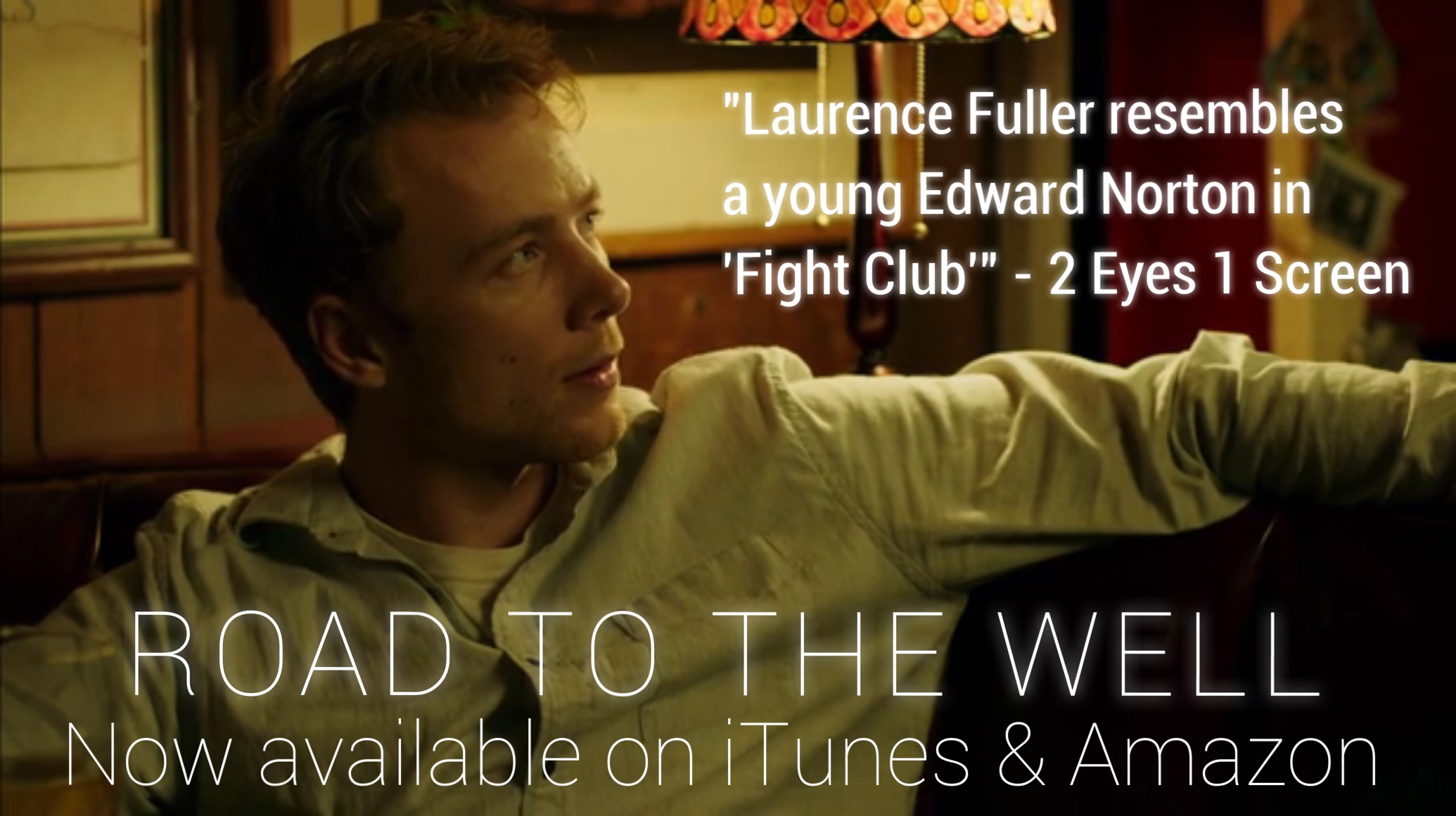
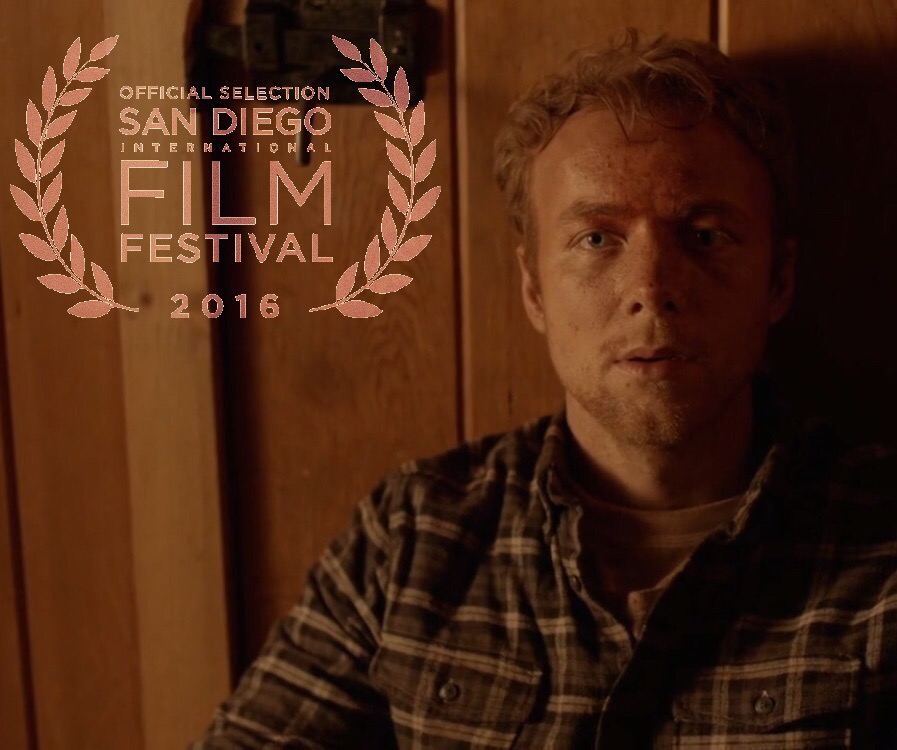


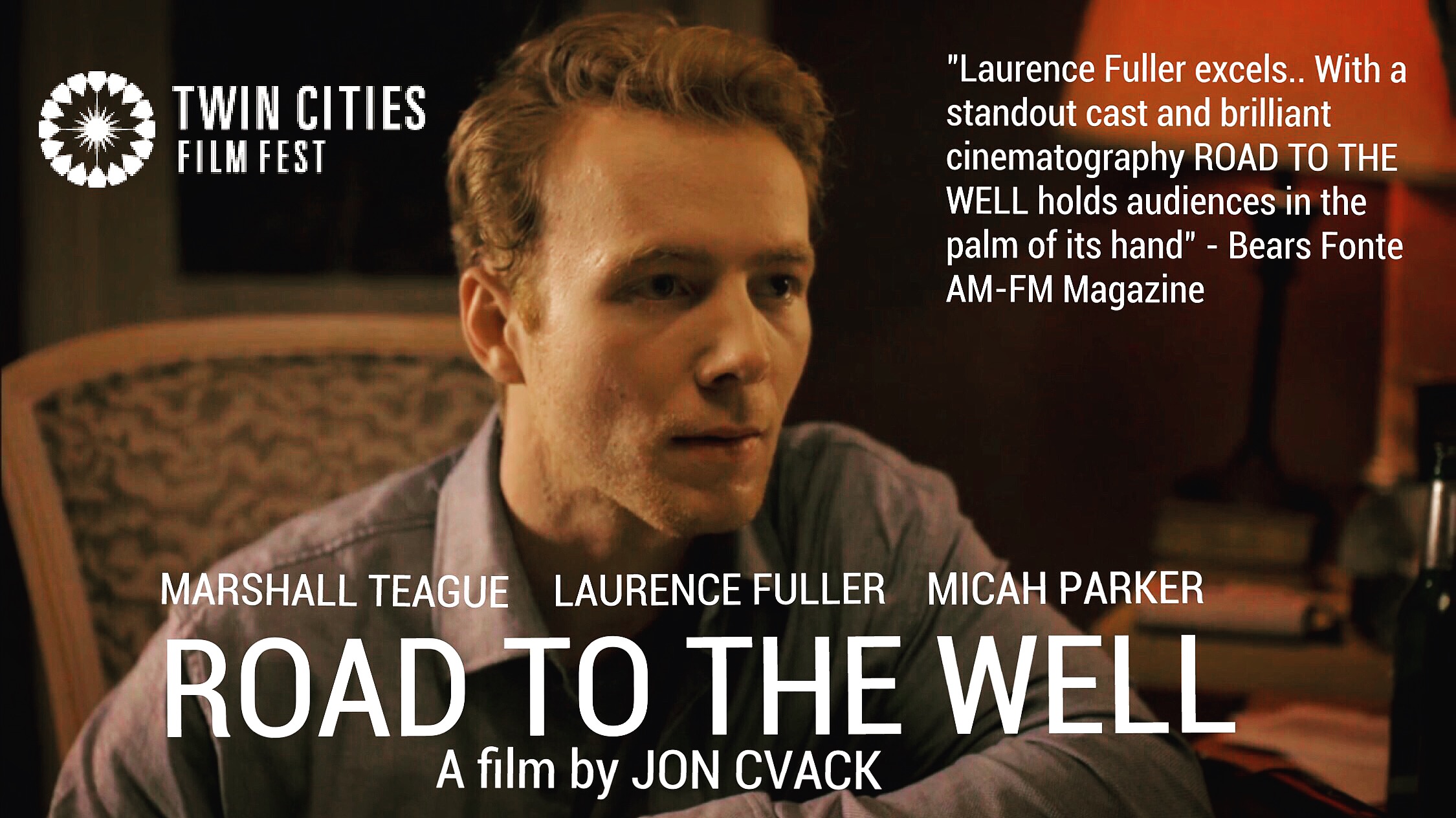
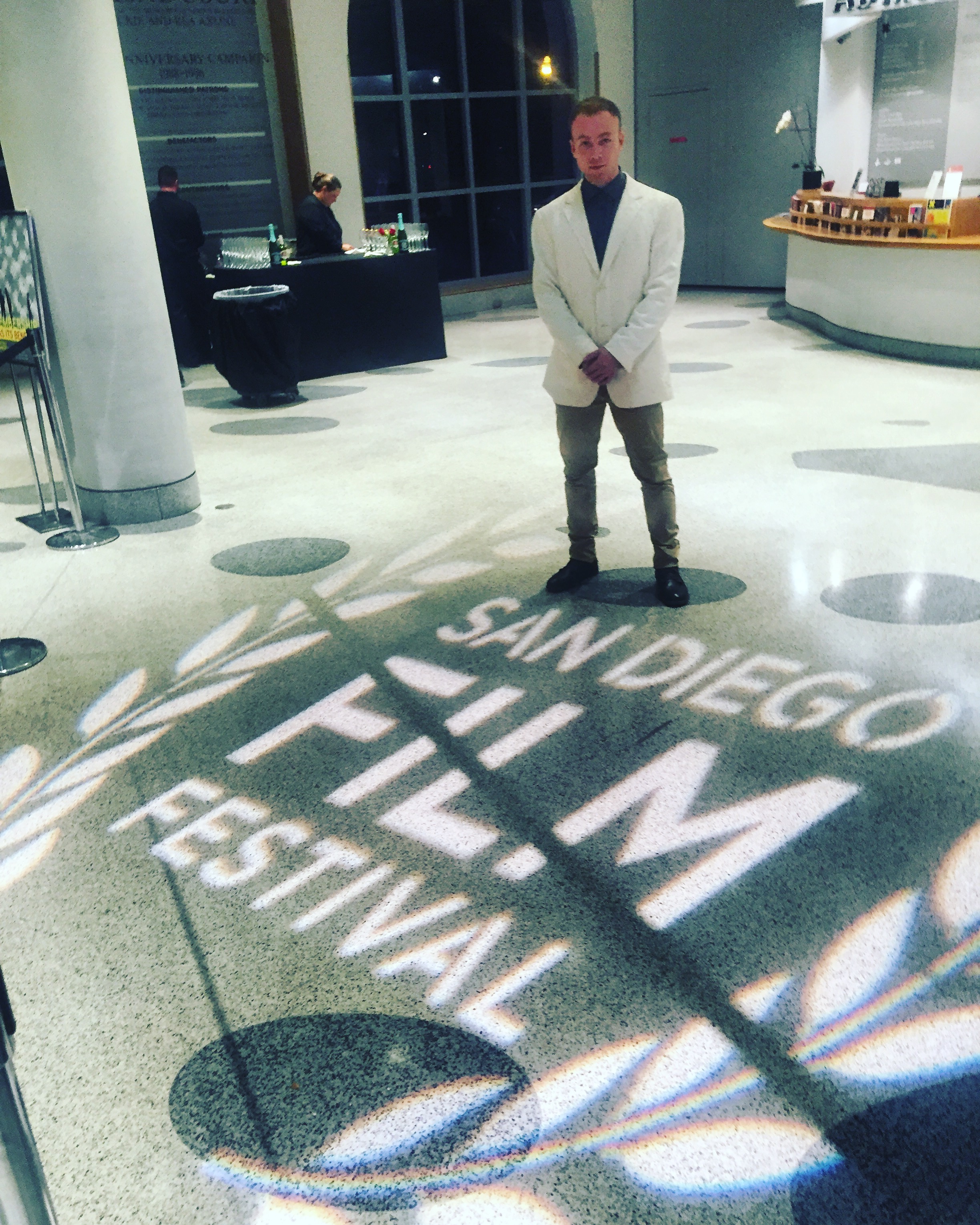

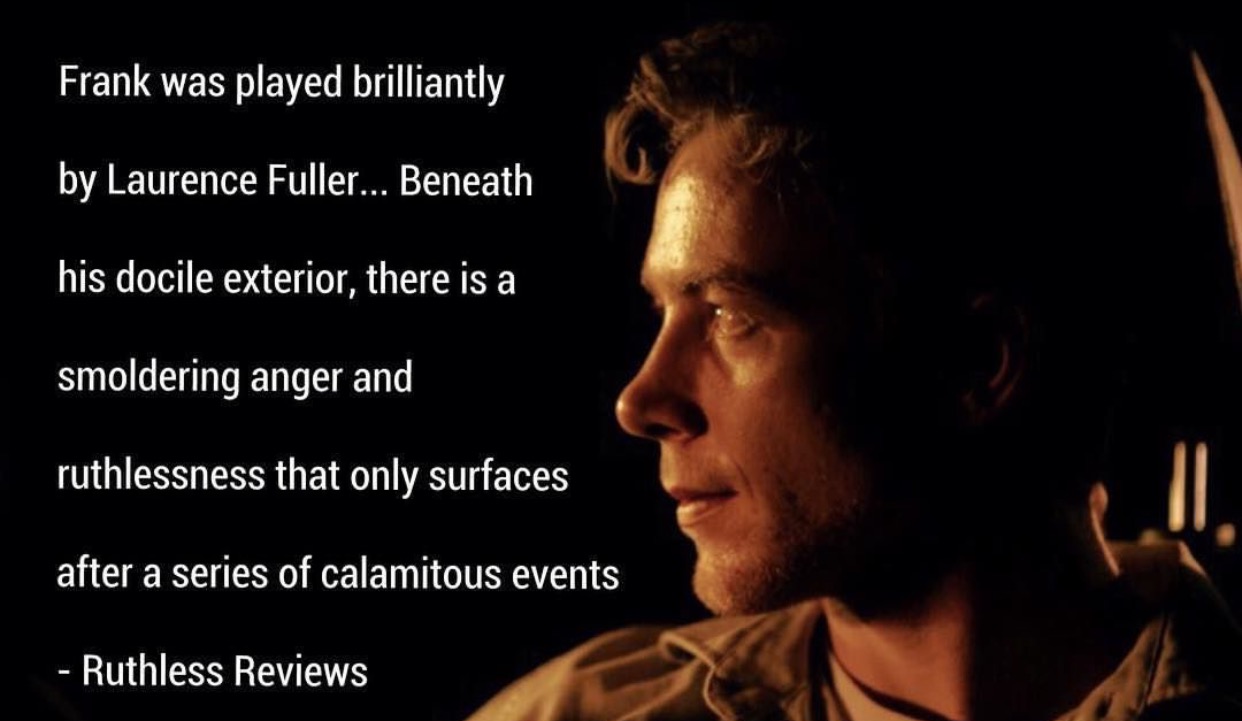

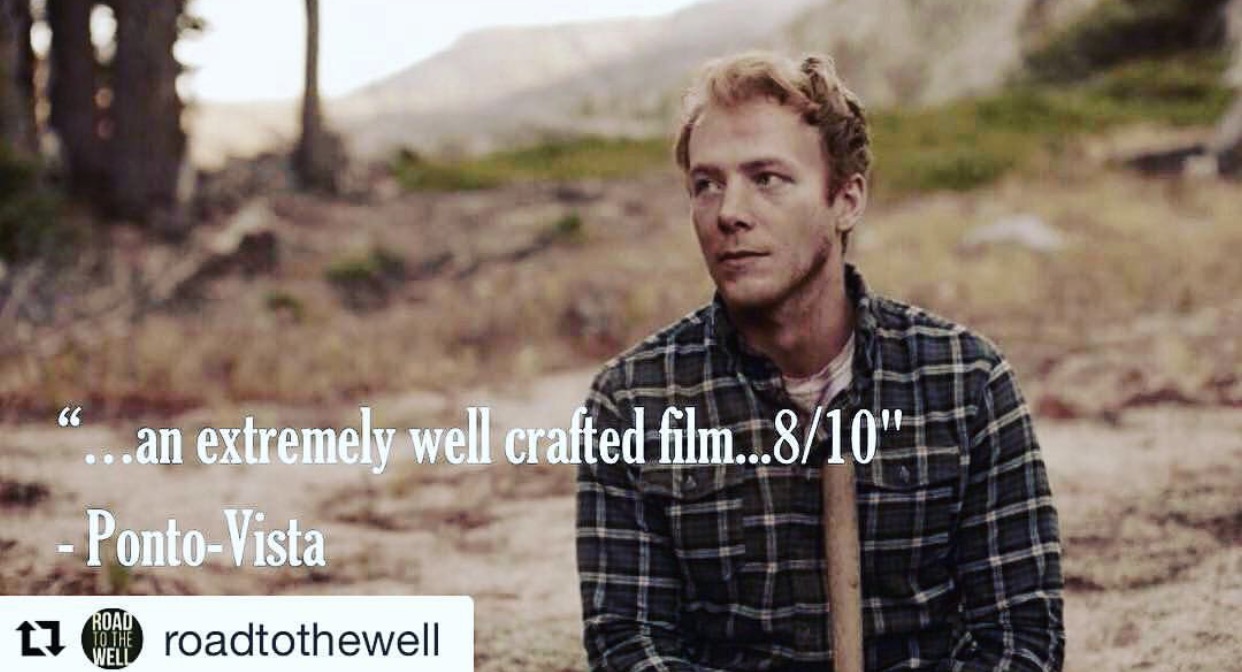
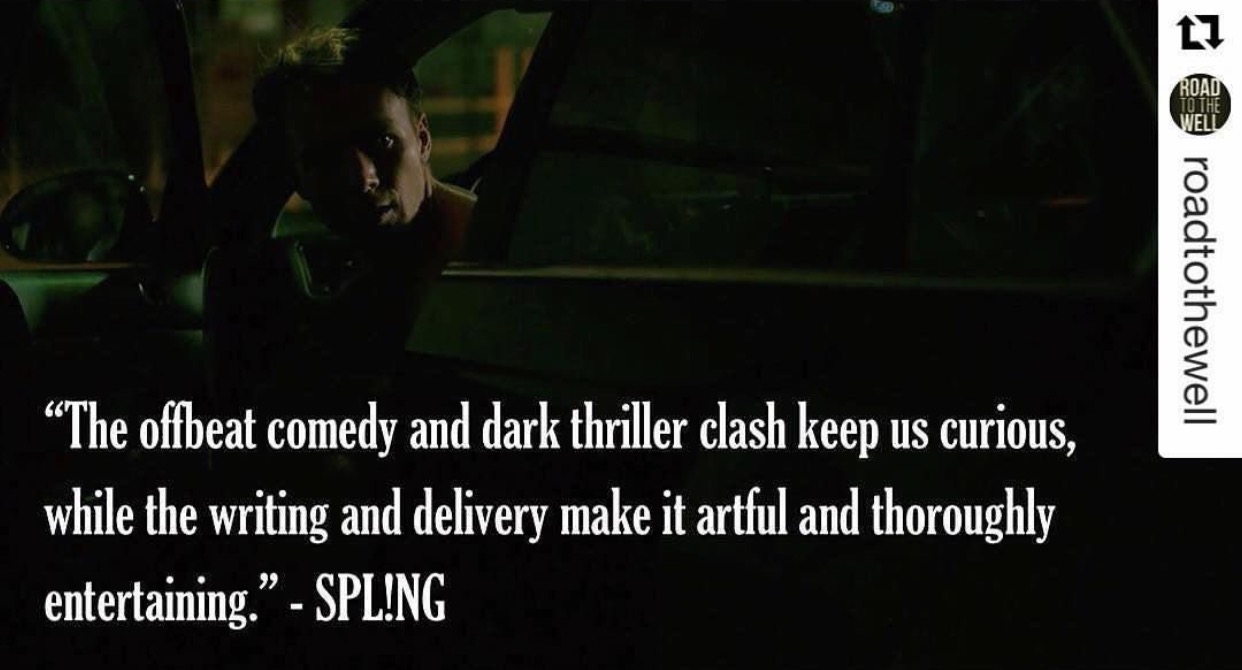
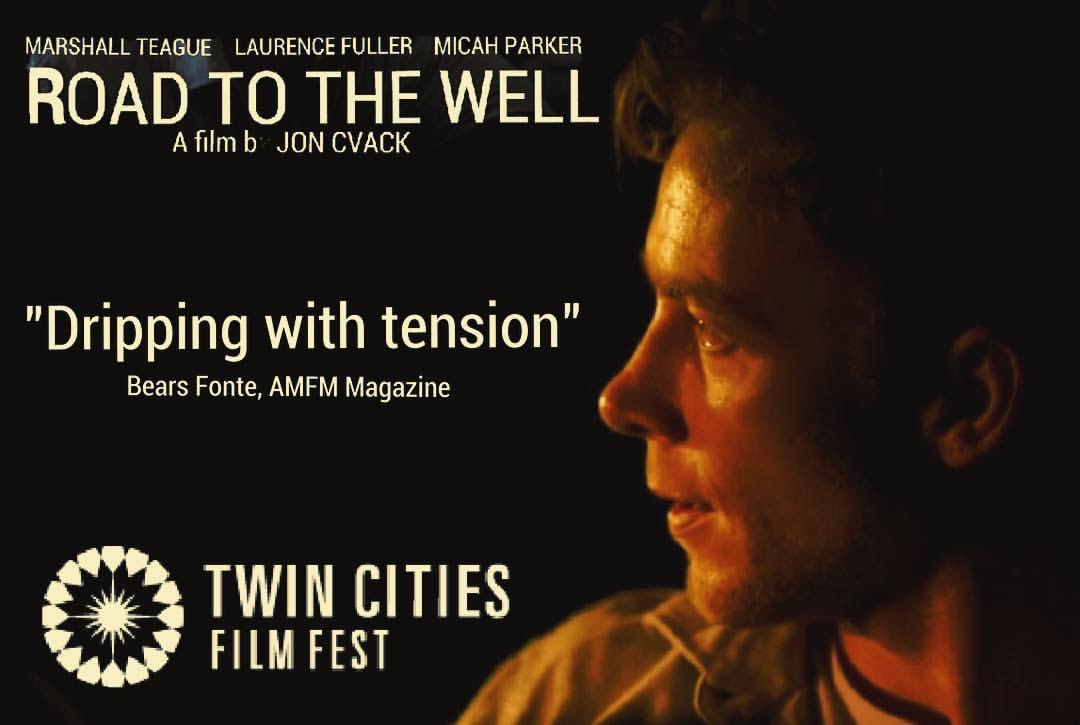


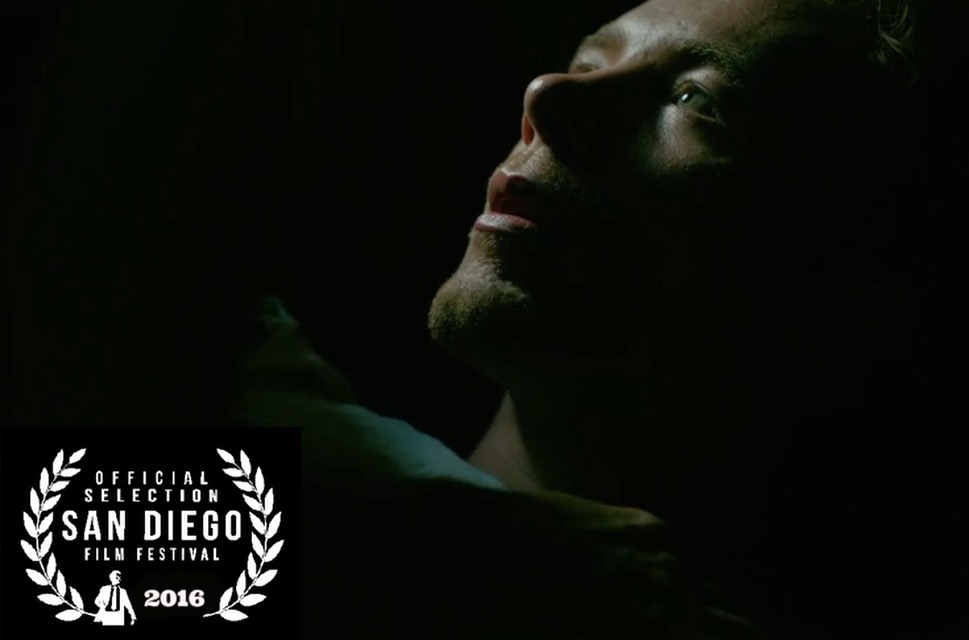
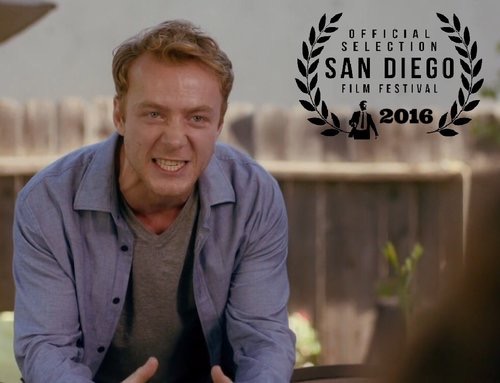

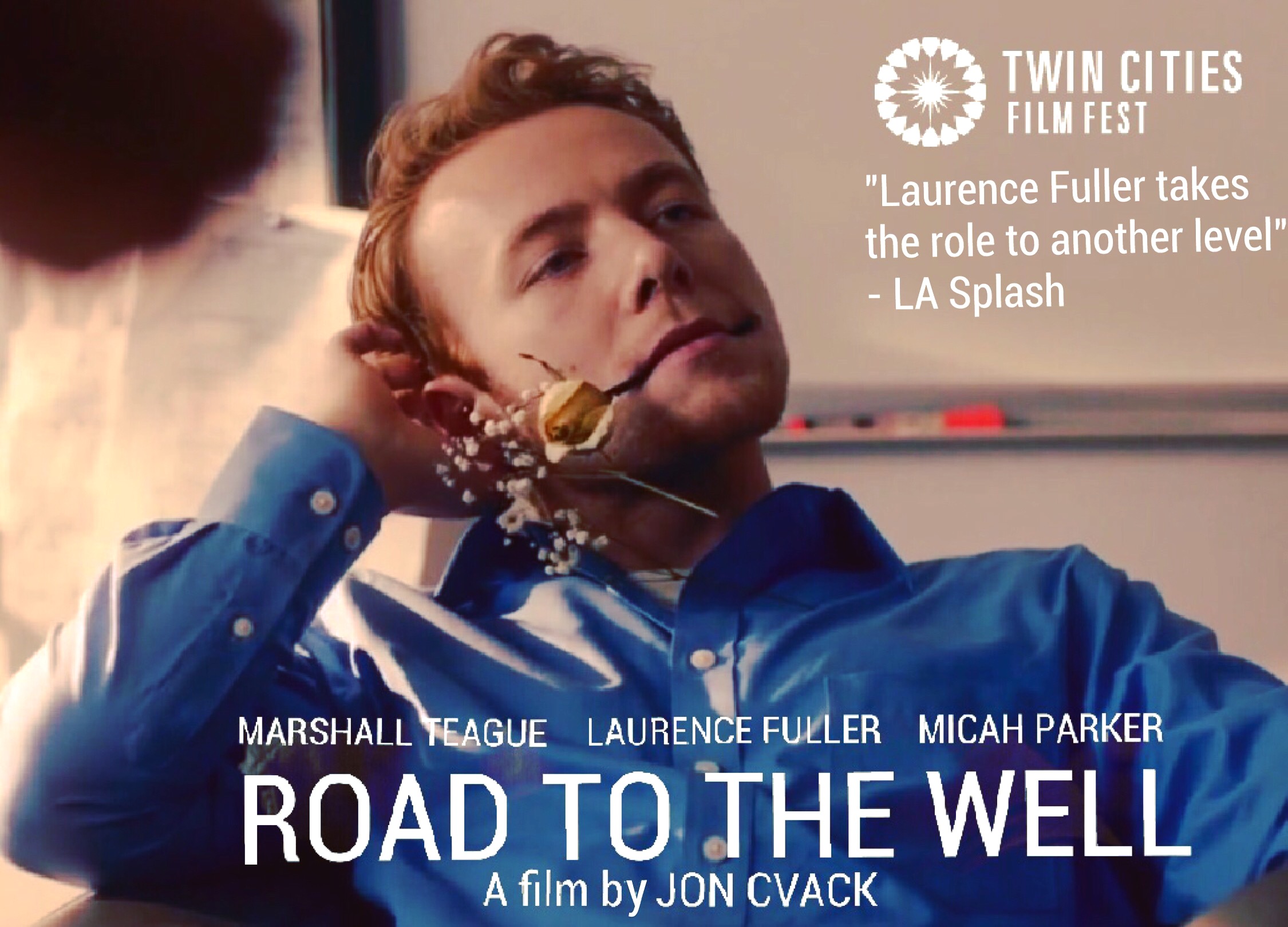
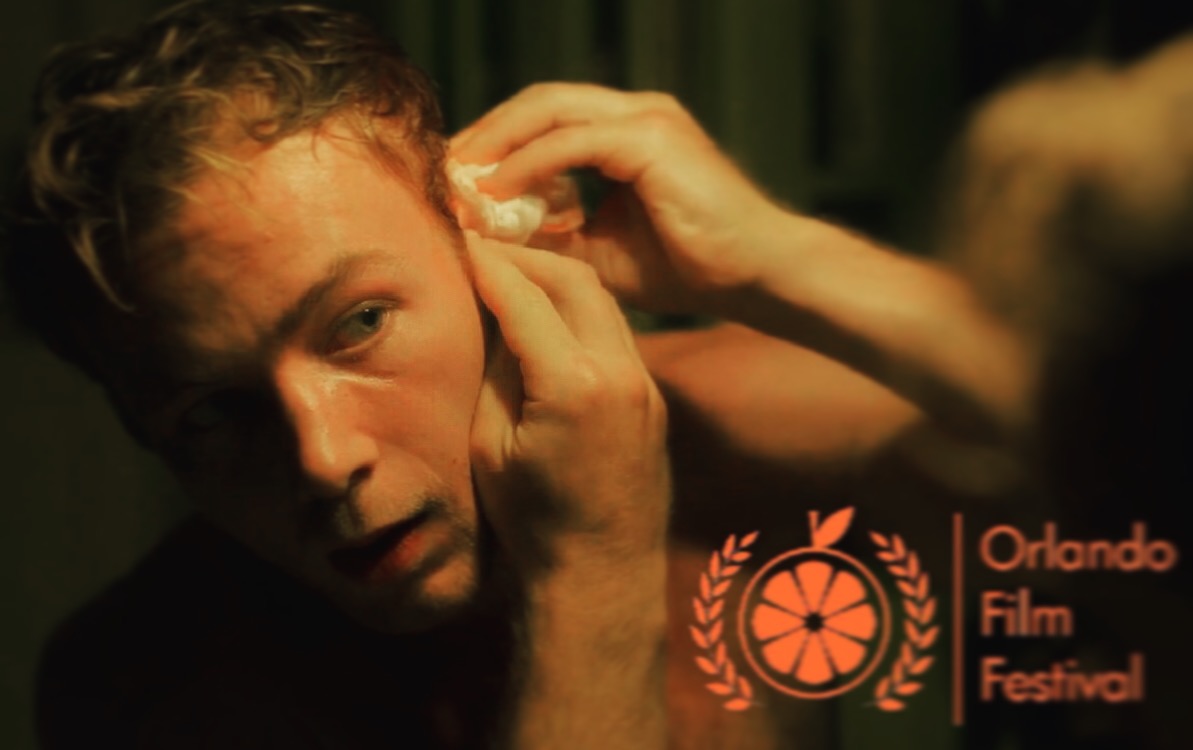
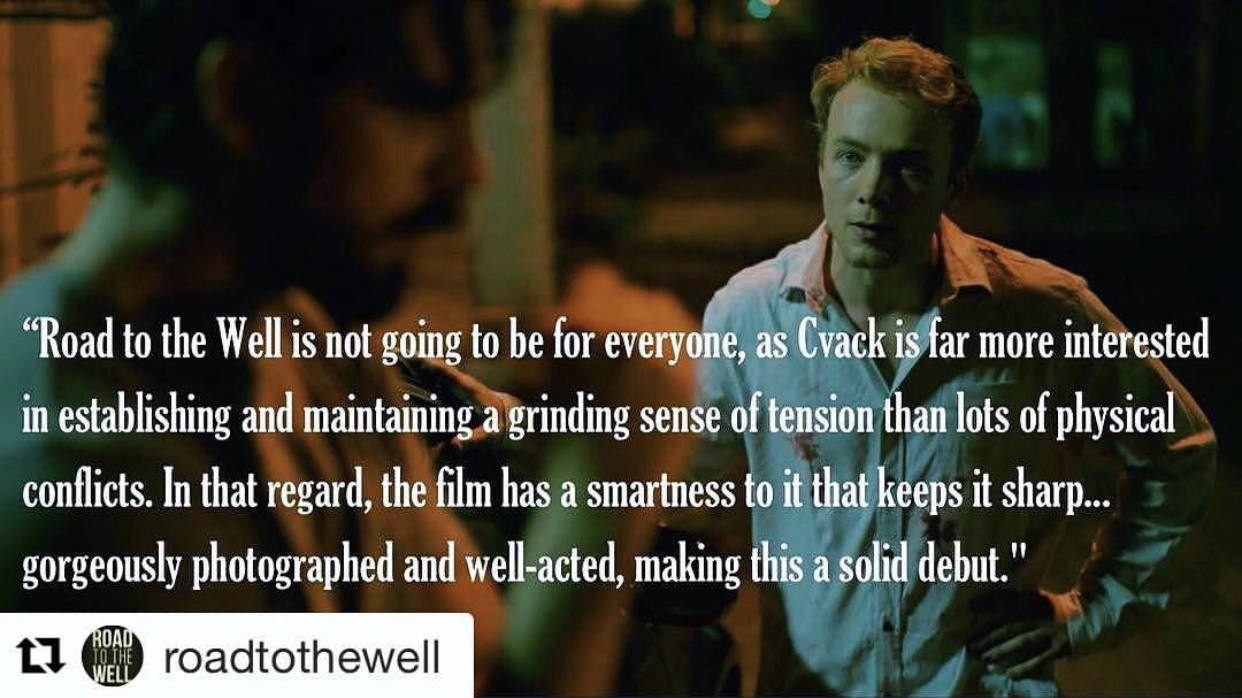
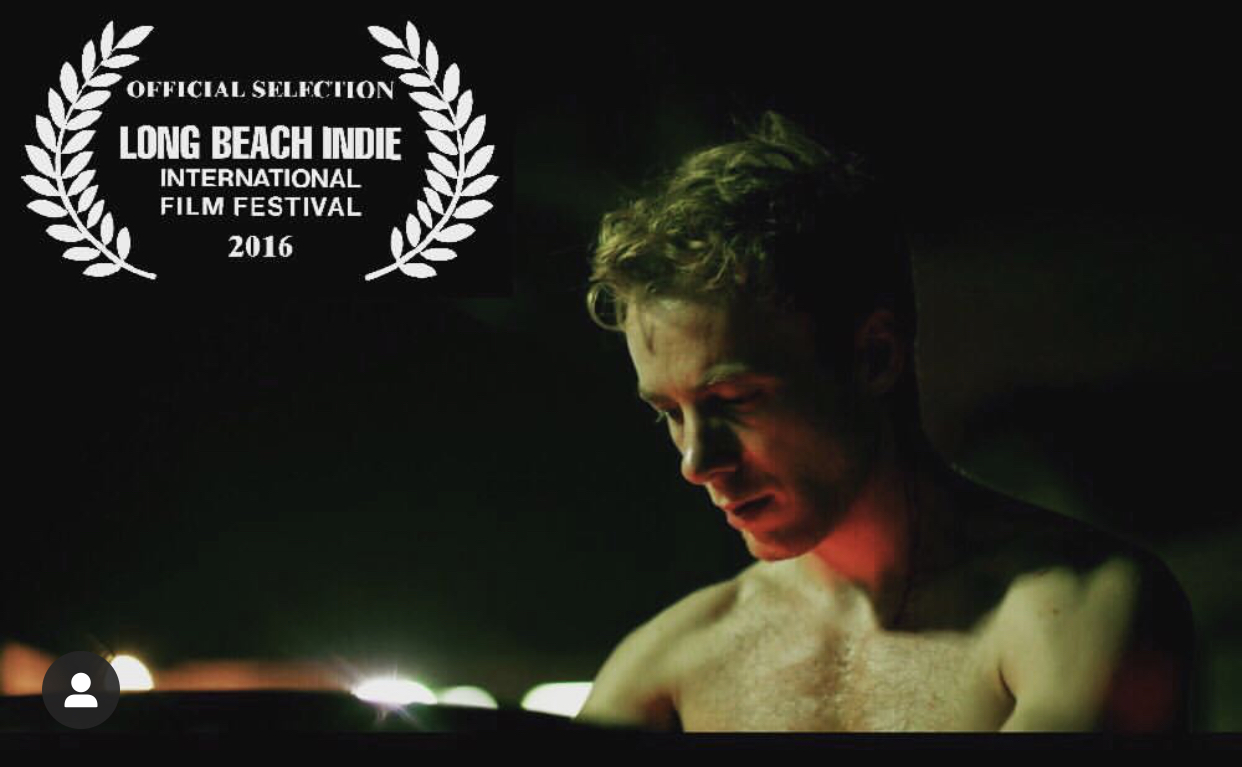

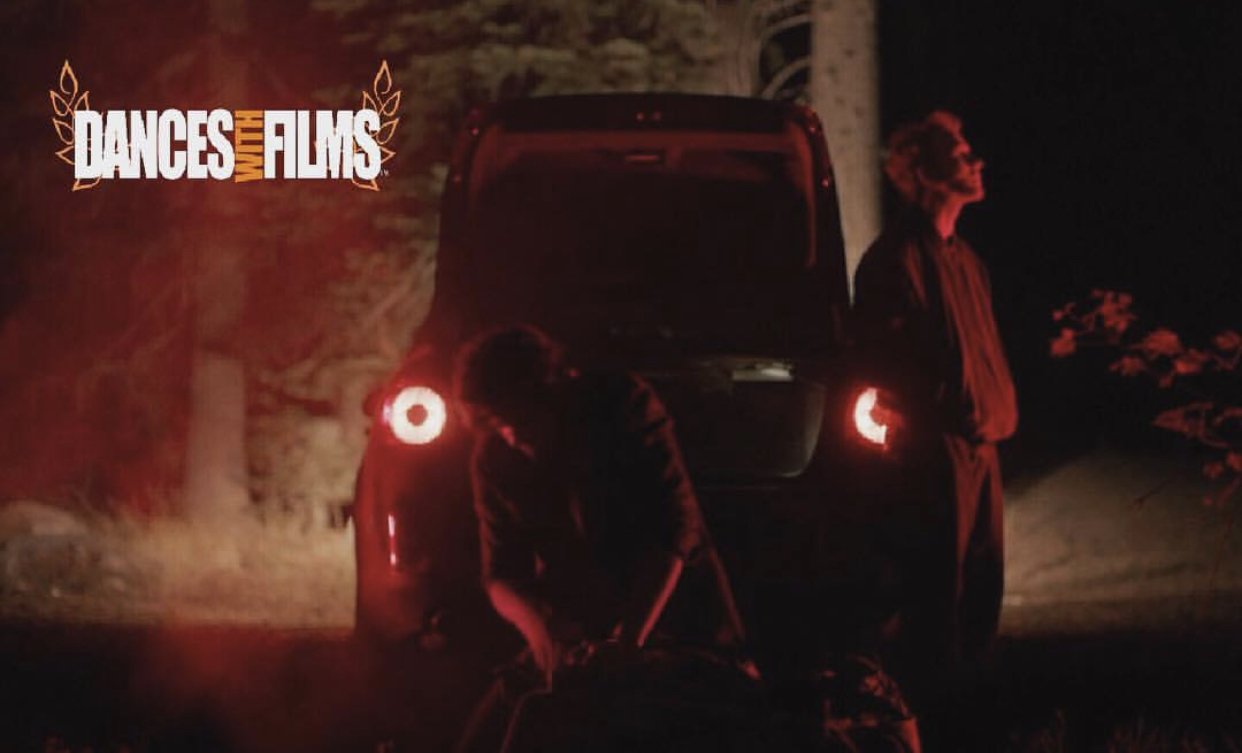
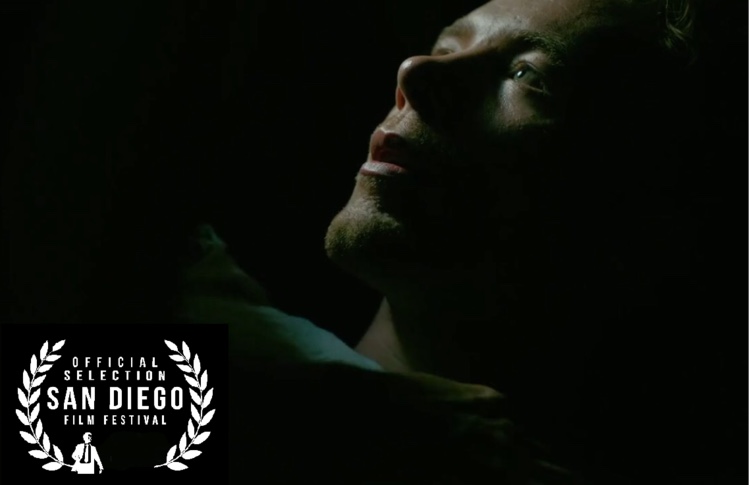
Director Jon Cvack’s interview with Frank Ochieng for The Critical Critics
Jon Cvack & Laurence Fuller at the Dances With Films premiere of Road To The Well
FO::
Jon, it is indeed a pleasure to interview you for the devoted readers at The Critical Movie Critics so much obliged for you taking the time to have me pick your brain about your creativity in movie-making. Your labor of love in the probing and delectable “Road to the Well” was an impressive feature debut for you. As director, screenwriter and producer for the film what was your inspiration for concocting this quirky yet penetrating murder mystery? What influences were utilized for the conception of your body-burying frightfest?
JC::
Great to be talking to you, Frank. I’m happy you liked the film. I’ve said it many times before, but this film was very much like that scene from “Apollo 13” where the engineers throw a bunch of tools and equipment onto a table, ordered to build an oxygen filter. We had to look at all the resources we had access to and try and construct a story from there. Tim and I started at digital media start up Maker Studios where we met who would become one of our producers and a great friend, Nick Mathews, who had a cabin up in Donner Lake where we filmed. With Tim and I being from the Midwest, going up there was a shock to the system. To this day it’s one of the most beautiful places I’ve ever been to, and we figured it’d be a great place to shoot a film. I’d studied philosophy in college, which acted as a bridge to literature by discovering novels like “Crime and Punishment,” “The Stranger,” and “The Orchard Keeper”; stories that examined murder within a more cerebral structure and offered profound examinations inside the mind’s of these fascinating and complex characters. Given that most people’s first stories are often based on semi-auto-biography, I looked no further than the topic of friendship, as I’ve been fortunate to have had some great and exceptionally close friends throughout my life; people who I consider brothers and would do close to anything for. How close that “anything” was felt like an interesting question to explore. Regarding movies, I’ve always been fascinating by film noir and its ability to combine great characters, photography, genre, and ideas. Many people think of these films as the dame walking into the detectives office asking for help, forgetting that these stories were crafted by some of the finest American writers who ever lived, who figured they could provide entertaining pulp thrills within complex narratives (I think I’m still trying to figure out what “The Big Sleep” is about). So our director-meets-dame was a friend getting his friend involved in a murder, and it was my goal to explore why this would all happen by exploring these characters. So between some noir, friends, murder, and a beautiful cabin it seemed like the perfect combination to start assembling the story.
FO::
How would you classify “Road to the Well”? Is it accurate to call it a murder mystery/thriller or does it register more as a horror showcase? Better yet is it an equal combination of both genres?
JC::
Although I mention film noir, I never really set out to make a specific classification of film (as even film noir extends across most genres). If you’re going to pour everything you have into a story you’re going to pull from everything you admire — from photography through literature, from buddy comedies like “Swingers” to westerns like “McCabe & Mrs. Miller.” Tim and I had consumed films religiously all the way through college and up to production, bringing all we loved to the table, so to try and categorize what we hoped to create is next to impossible. I’ve described the film as a dark-comedy thriller or even film noir, but horror showcase sounds so cool that I might start using that one.
FO::
What is it about the film’s plagued protagonist in Laurence Fuller’s Frank that one might identify with his escalating malaise? Should the audience sympathize with the disillusioned Frank or is he to be scolded for not taking the golden opportunity to commit to his academic excellence in favor of electing to wallow in corporate drudgery?
JC::
I owe a large part of that to Laurence Fuller, who absolutely killed the role. Casting him was the classic miracle of where once he came into the room and read the part the search was over. Laurence’s father Peter Fuller was a prominent art critic back in the U.K. and so Laurence came to set with his iPad filled with some of the most terrifying and disturbing paintings and illustration I’ve ever seen, which I’m pretty sure got increasingly more macabre as the shoot progressed (we shot more or less in linear order), so I think that Laurence developed this magnificent ability to gradually reflect his character’s gradual decay and descent toward corruption. Although an early note from people who read the script was that Frank was too passive, I knew that the right actor would be able to communicate all that was required without saying a word. I guess the plan was for some type of Kuleshov Effect, where the viewer could extend their own thoughts, fears, or desires onto him.
FO::
Should the audience sympathize with the disillusioned Frank or is he to be scolded for not taking the golden opportunity to commit to his academic excellence in favor of electing to wallow in corporate drudgery?
JC::
Absolutely. I figured Frank was someone who took Marx’s declaration for philosophers to change the world to heart, but as I believe many experience, from activists to artists, the romance quickly fades when you discover how arduous the process is (see my note below about this entire endeavor). So I think Frank deserves empathy — if only from millennials — in wanting to change the world and fast, unsure that he wanted to hop straight into an taxing graduate program, which proved to result in an even more challenging existence. However, both plans require motivation and Frank hardly has any. I think most people fall into that comfort — where you have a job, and it’s paying decent money, which allows you to do more superficial things (I don’t mean that pejoratively), but leaves little time for more meaningful endeavors. I know a great number of people who still have a dream, but you see them falling further into unrelated careers, working their way up the ladder and earning more money, which increases their cost of living, which makes quitting all the harder to do. It’s extraordinarily sad tome, as so many have so much talent to do other things that I know they’d love to do and would be great at (I always think of the line from “A Bronx Tale”). So perhaps Frank also deserves a bit of scolding — for ditching out on what he must have been pretty good at, which is philosophy, simply because it seemed less fulfilling than trying to actualize those ideas.
FO::
What was more challenging Jon in your duties behind the camera for “Road to the Well”: Directing, writing the screenplay or producing this film project? Please elaborate.
JC::
Writing the script was much more difficult than I anticipated. The first obstacle was creating a story within a very strict and ambitious sense of limitations, which became increasingly tighter as we realized how little money $100,000 was. The story revolved around trying to have interesting characters do and say interesting things, and then thinking of creative ways to suggest more extravagant action. At that point I had only written a few short scripts and two(ish) other features, so I was very green, gobbling up as many screenwriting books as I could get, searching for answers and discovering that, ultimately, it was my responsibility to make it interesting and no book was going to explain how to do that. Directing was a different beast — as it was much more a physical challenge. The production was nineteen days, ten in Los Angeles, and nine up in Donner Lake, across twenty-five days total and 75% of that shoot were night shoots from 7PM-7AM. So it took a lot of mental preparation, as any filmmaker who’s worked on a decent sized production understands the pressure and stress you will inevitably feel during those hours and length of time. Things will go wrong, and to know and anticipate those problems forced Tim and I to create back up plan upon back up plan, so we wouldn’t worry about what to do when issue arose, so much as how to do it. Still, no matter how much you plan, problems happen. I owe it to our incredible crew for allowing us to achieve this, who poured their hearts into the project and made this massive challenge all possible. Nevertheless seeing your movie come to life is one of the most amazing experiences I’ve ever gone through. I remember walking home from one of the cabins, after all of us were drinking one night, everyone is laughing and having a good time and getting along, and I’m sure there were issues I didn’t know about (kept off my plate thanks to our incredible line producer Hanna Walicki), but it was this very vivid moment of understanding I was doing exactly what I always dreamed to do and it was exceeding my wildest expectations. There were many moments like that throughout the month, which I’ll never forget. Producing was much more a game of rejection and failure, as the amount of times you hear “No” is almost unbelievable at a certain point — as in there were countless moments where I truly thought we’d be unable to move forward: From the Kick=starter to pre-production to production and post and the festivals and distro. The entire process was wrought with rejection, failure, and embarrassment, and that becomes difficult. Because it’s not romantic — it’s living broke, scrapping for gigs, to then take that money and put the majority of it back into the film, all while trying to maintain the momentum when coming up against obstacle after obstacle.
FO::
Outside of the film’s doomed duo in Fuller’s Frank and Micah Parker’s bad boy drifter Jack forced to chaperone a call girl’s dead fleshy remains on their adventurous road trip who in the film comes close to stealing the scene in creepiness, oddity and unpredictability? For the record my personal pick is Marshall R. Teague’s menacing take on military mental case Dale that compromises the nerve-racking tandem’s agenda.

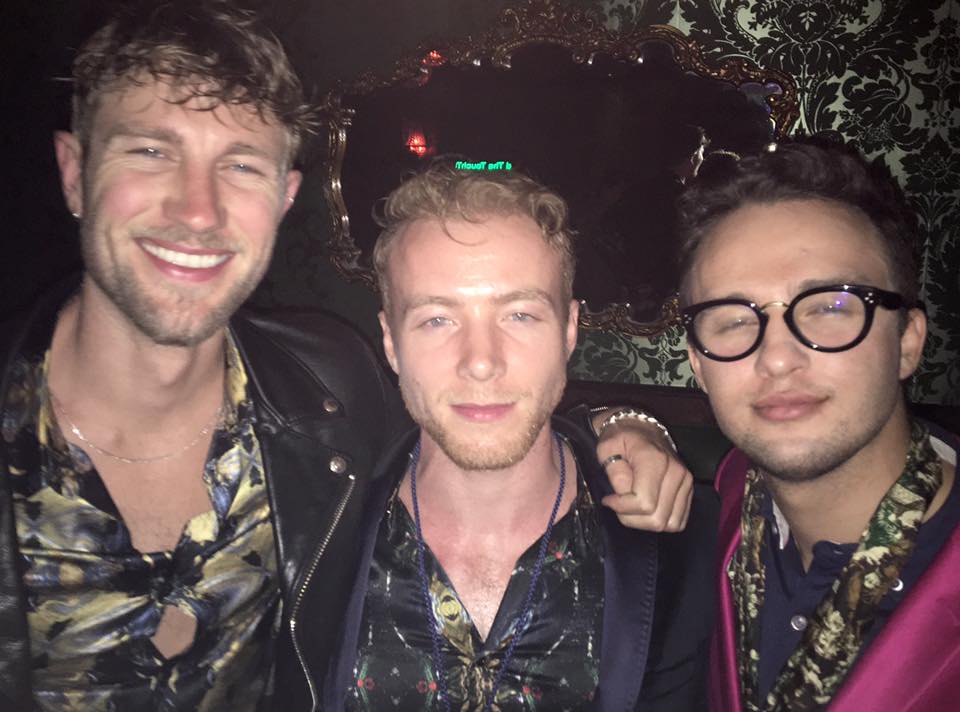
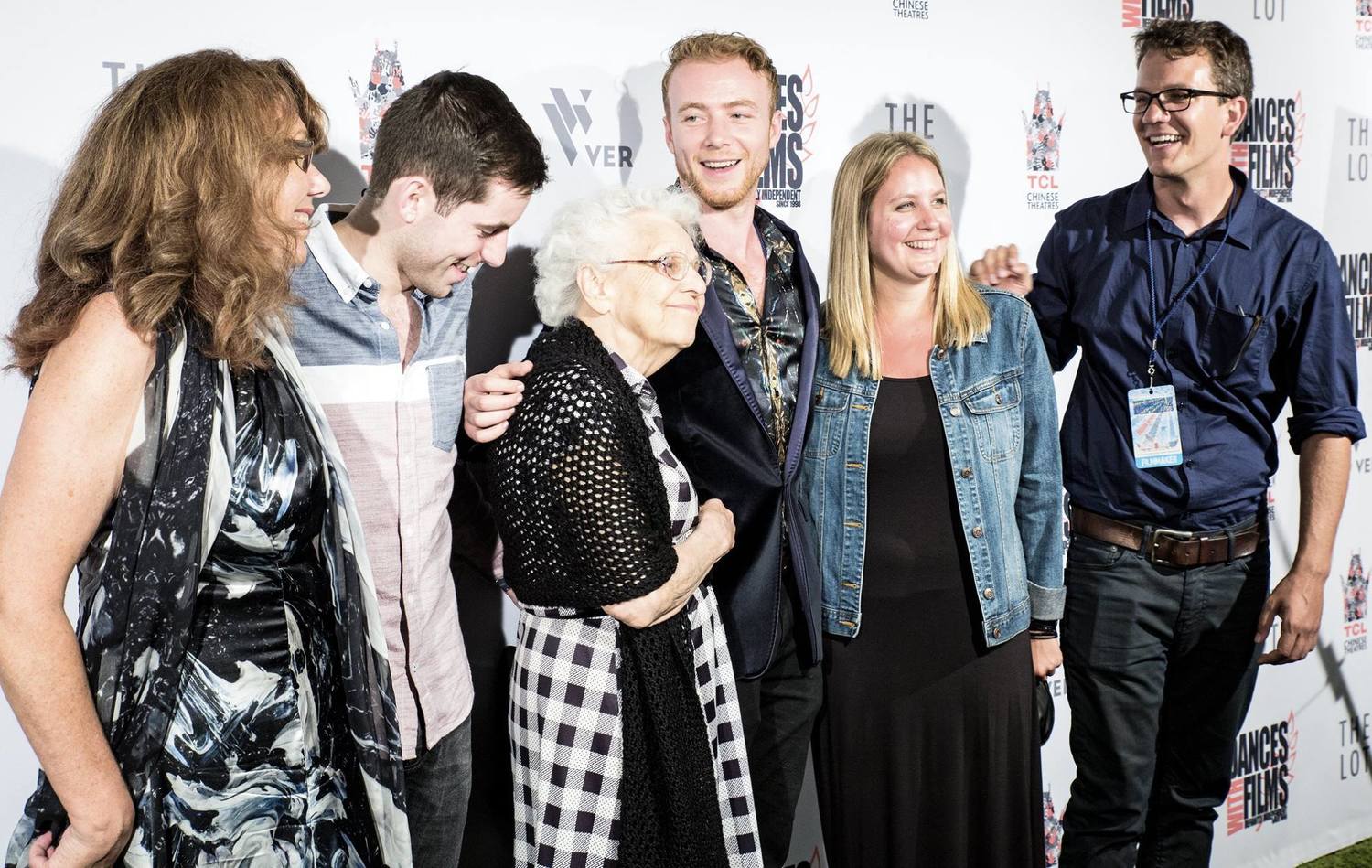
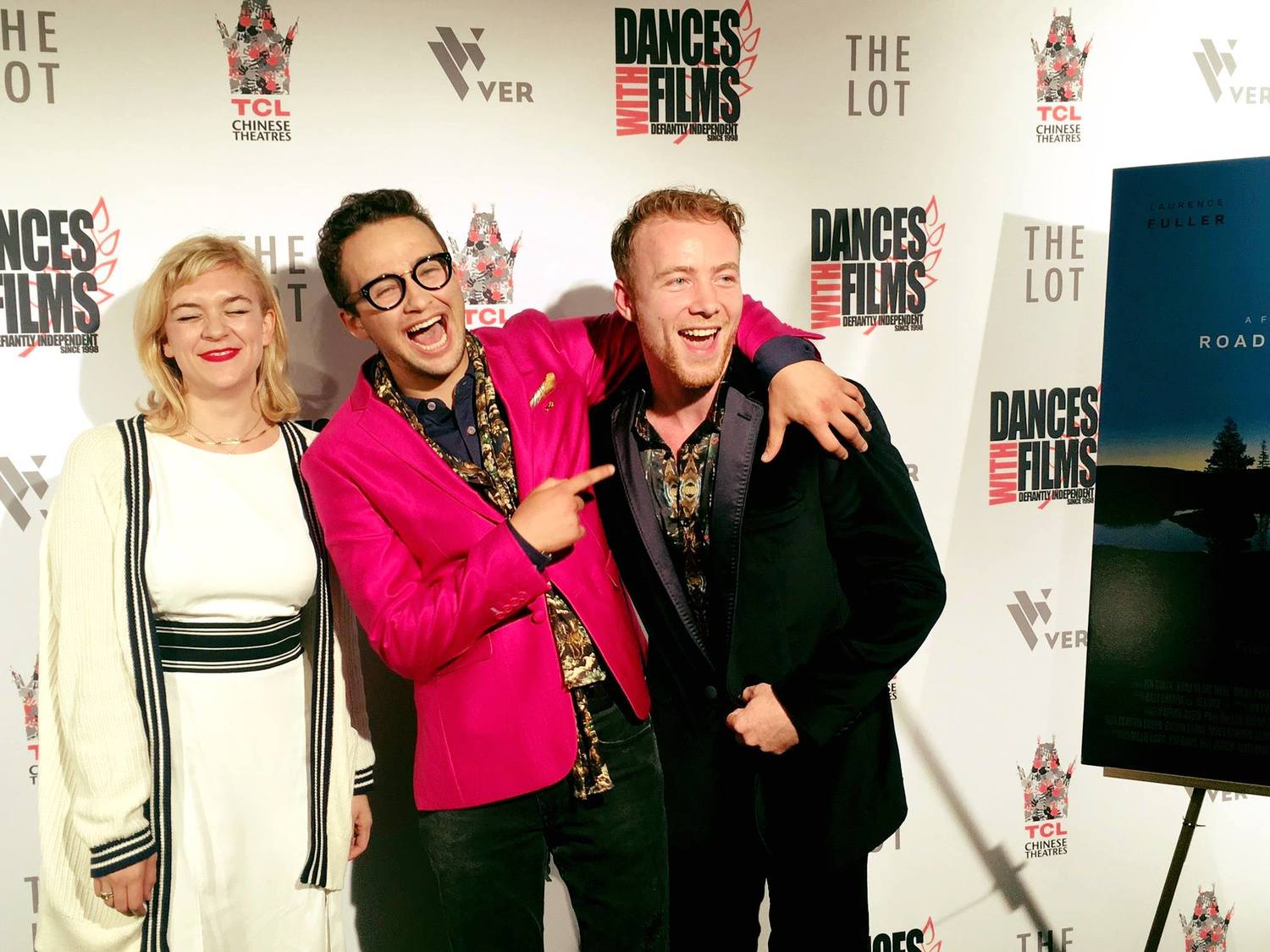
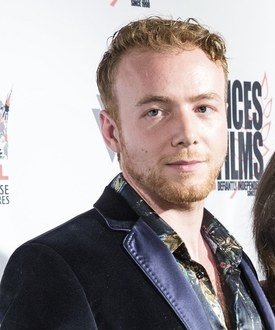
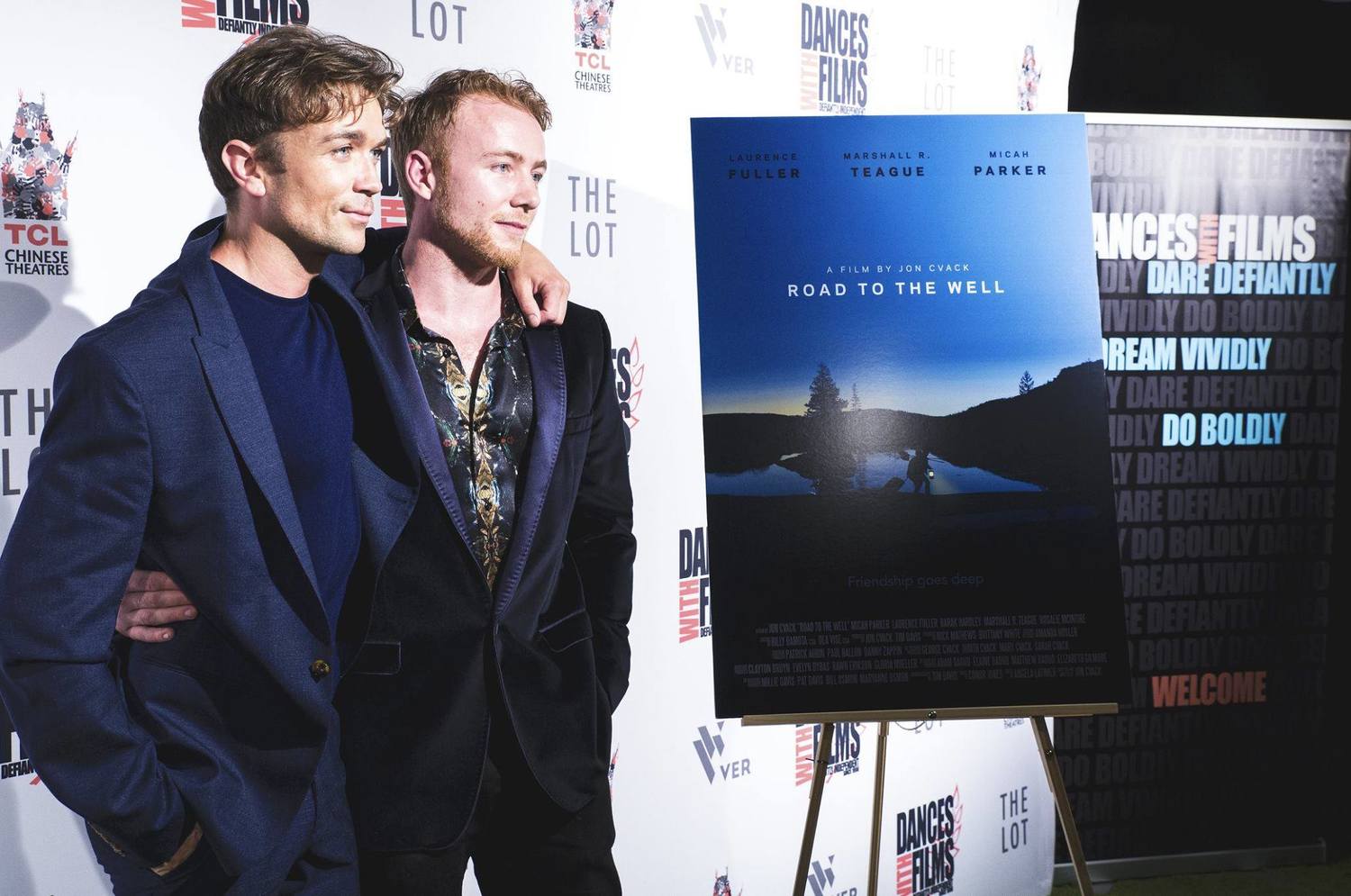
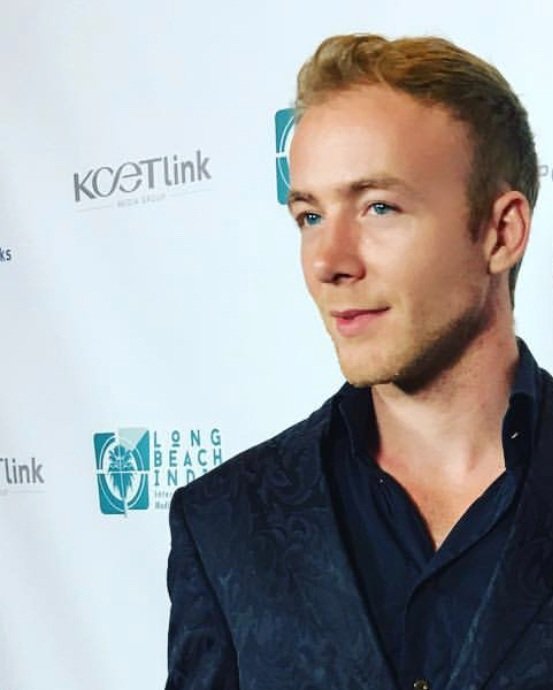
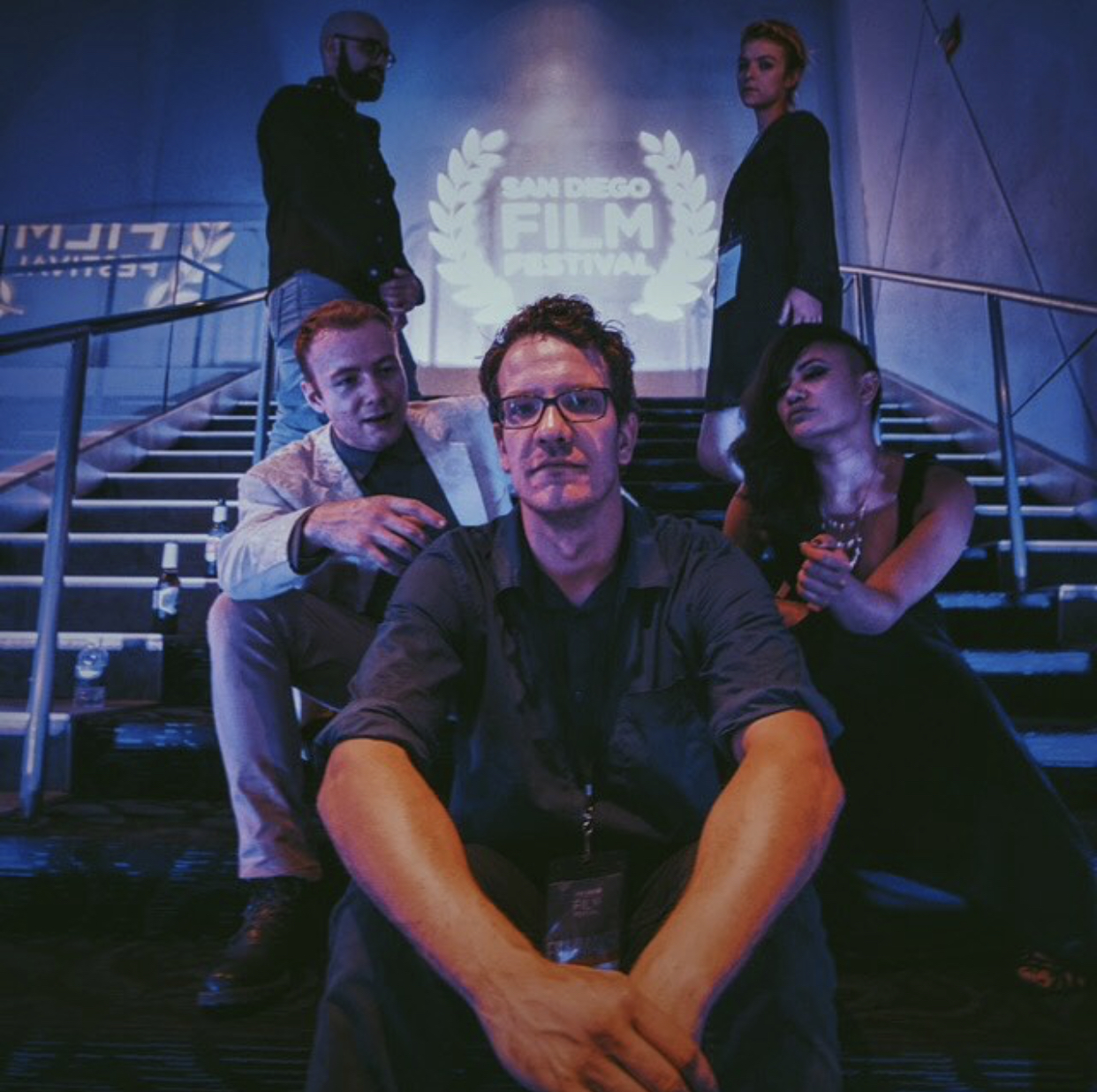
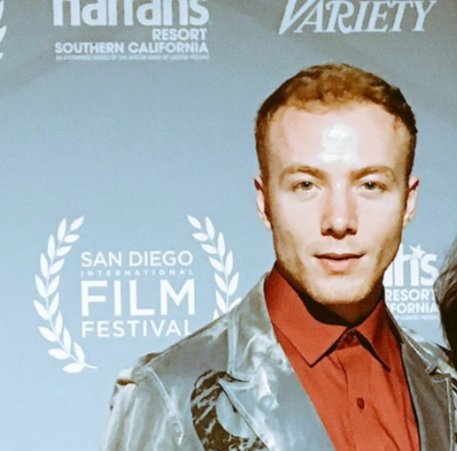
Friends and family at the premiere
JC::
It’s difficult for me to choose any one particular person, as I think all of the characters are meant to have some degree of creepiness and unpredictability. Each was designed to accommodate the same overarching “corrupted” philosophy; existing within a world that either partially destroyed their sense of good (like the office workers) or completely destroyed their entire sense of morality (like Jack). The mission was to watch as Frank interacts with each one of them as they slowly peel away his sense of decency.
FO::
In doing research on you Jon I found out that that you majored in Philosophy and Film & Media Studies at Loyola University as an undergrad. Certainly there are philosophical roadblocks that invade both on-screen psyches of leading misfits Frank and Jack. So what was the specific philosophy that you tapped into when conceiving the deadly dilemma that bombarded problematic leads Frank and Jack?
JC::
The moment I read this question I started seeing my philosophy professors reading this and passing judgment. Like most things, philosophy really extends into (I have to be specific here) either 1) an abstract or 2) a logical foundation, and both those of these directions go down some of the most profound and complex rabbit holes I’ve ever discovered. I think as an undergrad you leave philosophy feeling like you know far far less than you did going in, but that’s also a motivation to continue the study. Erich Fromm, Albert Camus, Søren Kierkegaard, Nietzsche and Socrates probably had the most direct impact on both me personally and “Road to the Well.” But it’s difficult to talk about specifically because their ideas are so large and complex that to provide brief explanations makes them sound facile and pretentious. Erich Fromm is one of my favorite authors, where every time I’m reading him, I’m thinking I’ll find far too extreme, but each time I’m blown away by his ability to take ideas from across the board — about economics, sociology, history, psychology, and philosophy in order to examine why humans act the way they do. Fromm would likely accuse Jack and Frank of mental illness, but the reasons why they developed that mental illness are where his ideas really shine. If I could pick two non-fiction texts that most impacted the film it might be “Man For Himself” and “Sane Society.” I don’t necessarily agree with all of his ideas, so much as from a story perspective, I find them fascinating and profound.
FO::
Jon, was there any particular director or film that motivated you to pursue your passion for freelance filmmaking? At what stage in your life did you feel like venturing into the motion pictures industry?
JC::
Every time I hear this question, I think of that line from “Sideways” where Miles asks Maya which bottle brought about her oenophilia. Everyone who has a passion for something seems to have that one moment with the endeavor where there’s this cosmic shift between having a casual interest and loving it enough to pursue as a career. Tim Davis (our cinematographer) had his with “Magnolia,” having this sudden epiphany that he wanted to make movies for a living while watching it. I think I’d have to go with “Jaws.” It always reminds me of pure escape during a period in my life before I ever considered or wanted to make movies. I recall being a tween during the humid Chicago summers and I’d be playing outside with my friends and get called in once dinner was ready. I’d ask to go back out and my mom would say no and I’d be bummed, or my other friends had to head in and the night seemed over. I have this very distinct memory of entering my house under these exact circumstances, feeling the cool air conditioning washing over me, discovering “Jaws” on TNT (channel 53 back in those days), and I just remember my mind completely shifting; no longer caring about the disappointment of having to stay inside, immediately prepared to take this incredible journey with Quint, Brody, and Hooper. I write a lot about old and new films at my website yellowbarrel.org (had to do the plug), and I’ve said before that “Jaws” is perhaps the finest example of how film mechanics and story can operate on a subliminal level for those who don’t understand them. As a pre-teen kid, I had no idea what made “Jaws” work so well, and as I got older and I became further immersed with studying film in college and my first years in production out in LA, I began to understand what made the movie so good — between the characters, direction, and writing. The reason the movie is timeless is because it’s film craft of the highest quality. I think far too many cinephiles fail to give Spielberg the great credit he’s due. Although his stories are perhaps more straightforward, I don’t think one other filmmaker could have made this film as good as it is. In addition to that, and speaking of Spielberg, my hopeless romantic teenage self also drew me to “Dawson’s Creek,” with it’s teen love triangles and Dawson’s film aspirations, specifically. As goofy as it sounds, I think something about how he discussed film, between the history and trivia, along with incorporating Easter Egg cinematic references into the show’s narrative, showing his small productions, and his passion or Spielberg, kind of planted the seed of possibility and romance; making me think maybe I could try to do this.
FO::
What would your advice be for aspiring filmmakers in taking the next step to realizing their dreams for entering the craft of making movies?
JC::
The best advice I ever came across was in the back of a Movie Maker Magazine, where they had an “Ask a Filmmaker 10 Questions” section and the month’s director said something about how aspiring filmmakers needs to ask themselves if they could imagine doing anything else with their lives. If the answer was yes, then they should definitely go do that, as this really is a competition of both raw talent and perseverance. When you come out to LA, you discover that you’re no longer the unique kid with this crazy passion and dream, but one of tens of thousands, all who loved it enough to leave their families and drive across the country or come from around the world. The entire process is wrought with failure over long periods of time, and if you can’t deal with that week in and week out you will quit. I think everyone has this image in their head like that scene from “Rudy” where he’s receiving the rejection letters from Notre Dame, until he finally gets the eleventh hour acceptance. No film, song, or book that examines an ambitious pursuit will ever capture the amount of time that transpires while struggling and getting rejected over and over. However, if you’re working hard enough, and you keep on failing you’ll soon build some scars. The failure starts to sting less, and then it becomes a waiting game. And as Ta-Nehisi Coates once said on creative breakthroughs you always look to the silver lining in that as more people quit and the longer you go, eventually the competition dwindles. Or so you hope. (I recommend the article on computer programmers’ failure philosophy, which just goes to show the universality of the approach) I’ve made a film that’s being well received, but it’s not changing my life. I’m sure that I’ll continue to struggle for, at the very least, the next few years, and very likely even longer. But it’s worth it, especially after making one and getting the bug of seeing that image in your head come to life. I remain unsure of what else I could do. So my advice is to seriously ask that question — can you imagine doing anything else? I’m not sure how long I’ll last, but I’m still going. And when you make those tiny inch advancements, it becomes all the more thrilling.
FO::
So Jon, is there anything that you can share with us in terms of what you have in mind for post-production concerning another film whether it be a full feature or short film?
JC::
I’ve been working like crazy on my next feature script since last February, hoping to have it done before our release. It’s a type of political thriller/chamber drama and I honestly couldn’t be more excited for it. After you make a film, you discover all the mistakes you made, and become aware of all the things you could and hope to improve. This next project is a result of taking all that I learned and applying it to a different type of story. I hope to have more details soon, but see the previous question . . . haha
FO::
Is there a favorable genre of film that you fancy more so than other kinds of themed movies?
JC::
I’m about to nerd out here really hard, but I have this spreadsheet that I first assembled about three years ago, in which I have all of these directors and a list of their films presently available on Netflix (DVD, that is), which have at or above a 3.8 recommended rating, as anything below that often is kind of boring and not worth the literally hundreds and hundreds of films that do fit the criteria that I would rather watch. So containing about 68 directors at about an average of four films per each director, I forgot the exact calculation, but it should last me another 5-7 years to get through them all. What you discover is that most of the greatest filmmakers worked across all genres, and seeing their view and approach is more exciting than any specific type of story. So it’s not about genre, it’s about great films. I think everyone kind of wonders what to do after they work their way through AFI’s top 100 lists, and the more famous director and writer filmographies, and some turn to the 1001 films to see before you die, or other AFI lists, and I felt like it’d be cool to study the greatest filmmaker filmographies, with some limits set in place.
FO::
Jon, please complete this thought: “I make films for the sole purpose of______________________.
JC::
Hmm. This is a tough one. There’s not really a “sole” purpose. I love writing, I try do it every day, but it wasn’t always fun, especially when I started out. It’s a tricky chicken and the egg situation, in that — given what I mentioned earlier about coming to LA and being overwhelmed with the amount of talent — I knew I needed to get way more serious about what I wanted to do. And getting yourself on a schedule every day to sit down and try and write isn’t very enjoyable at first. It’s like starting to run or weight lift or any exercise, in that it seems so hard at first, but then something shifts and you get that high and now I truly couldn’t imagine not having this type of schedule for the rest of my life. But I didn’t discover that until long after I got into film, back when it was more about the magic. So long answer as usual, but I guess it’s for the purpose of the magic and the method.
FO::
Now Jon, this is not to put you on the spot (smile) but what is your perspective on film criticism in today’s cinematic atmosphere? Are critics for the most part helpful or a hindrance to determined artists such as you?
JC::
This is a tricky question because I have to approach it from both a filmmaker perspective and as a reader of criticism. As a reader, I think Ebert’s death reflected the downward turn from modern criticism’s zenith. Tim and I are from Chicago and so him and I had what we felt was a type of kinship to the guy. He was this blue-collar critic who was able to bridge the gap between “high class” or more obscure films and audiences that might otherwise never check them out. He also existed during film’s apex within popular culture, when movies were regarded with the highest cultural relevance. The world wanted to know what a critic thought about a movie and would use their thoughts to decide if it’s worth checking out. Now we have Rotten Tomatoes and IMDb and other score aggregators. And yet as much as I might miss the critics, many of these are very helpful in avoiding bad films. Ebert’s passing has felt as though film criticism suddenly shifted into this elitist activity, reserved only for specific audiences. To give you an example, we have about thirty positive reviews, and yet I’ve been rejected from numerous national critics because our movie is not playing in a movie theater. That’s it. Our movie is not in a theater and they don’t review SVOD or straight to DVD. I’ve received that response from every mainstream critic who’s responded. The purpose of criticism to help the world discover interesting films, and while I would understand if our film was getting chastised across the board that they might be more reserved, to flat out reject us simply because we’re not in a theater is ridiculous. It’s not to say we’re the greatest indie of all time, but I’ll tell you it is bizarre knowing that the lower classes of filmmakers and critics are being completely ignored, even against all of these disasters being pumped out weekend after weekend. It’s the larger critics’ responsibility to find good movies. It’s movie criticism, not movie theater criticism. To think that in 2017 there are people who still believe that a movie going straight to Netflix or other streaming services is de facto a bad movie, or not worth their time is infuriating. So I think that needs to change and I think between you, and all these other online publications (whether they like “Road to the Well” or not) you are all serving an incredibly important mission. It may be cheaper to make movies, but it means more movies are being made, and you all are at the front line for discovering smaller films. National critics should be looking to websites like yours and others to try and discover good films; not waste their time in reviewing bad films.
FO::
Jon, where can folks contact you if they were curious about learning more about you or discovering what else is on the plate for your next movie project?
JC::
They can get a hold of me or check out news and updates on Facebook, Twitter, or Instagram @RoadtotheWell, or our website roadtothewell.com. They can also check out my website yellowbarrel.org where I write about old and new films or follow me on Twitter @joncvack.
FO::
Final thought Jon: What kind of satisfaction do you take on a personal and professional level when it comes to your commitment in engaging the audience with your ambitious narratives?
JC::
I keep saying that getting the film out there is like being done with a five year marathon and wanting to just kiss the ground, but it also makes you terribly hungry to take all you learned and make another one. The next project is going to be a challenge, so I think the only satisfaction you receive is moving forward a little bit every day.
FO::
Well Jon it has been an interesting and insightful session in obtaining your feedback for the well-rounded “Road to the Well” and other matters that define your role as a spirited freelancer in filmmaking. Thank you so much for your undivided attention and here is wishing you all the best in your continued professional capacity as a filmmaker and committed student of artistic expression.
JC::
Thank you, Frank.







